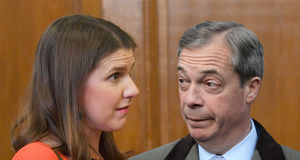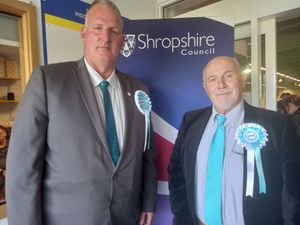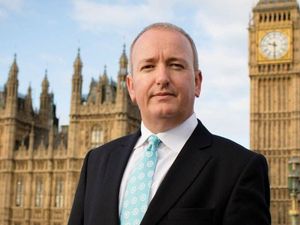The also-rans who may determine future of UK
When it comes to Brexit they are polar opposites, one of them demanding a clean break from the EU, while the other insists we must stay in.

But Nigel Farage and Jo Swinson share common ground when it comes to one issue surrounding the election – both could have a huge say on who becomes Prime Minister on December 13.
Neither will end up in power. Ms Swinson can realistically only hope to make big gains to take her to the 60-odd seats enjoyed in the days of Charles Kennedy. Mr Farage isn’t even bothering to stand, but will be active in the next few weeks rallying his troops.
Both are a thorn in the side of the two men who will battle it out for Number 10.
Brexit Party leader Mr Farage’s insistence on standing 600 candidates has particularly infuriated the Tories, who say his move could split the Leave vote and stop Brexit from happening altogether.
Mr Farage could not care less. In his mind Boris Johnson’s deal is simply not Brexit, so when the PM rejected his proposal for a ‘Leave alliance’, he went straight into attack mode.
It is familiar territory for Mr Farage, who transformed Ukip from a fringe party to major political force during the EU referendum campaign, then dumped them on the scrap heap when he thought his work was done.
Parliament’s failure to deliver Brexit – or anything close to what he believes departing the EU should mean – have brought him back into the spotlight.
It did not take him long to make his mark.
OPINION:
His swiftly thrown together Brexit Party was a disorganised mess according to some political commentators, but managed to destroy the field in the European elections, becoming the UK’s biggest party by a mile.
His core message that Britain had become a nation of “lions led by donkeys” clearly resonated with millions of voters.
Viewed by many as the face of Brexit, the 55-year-old has spent a quarter of a century as the leading campaigner for the UK’s withdrawal from the bloc.
A former City boy, he has been a MEP since 1999 and is known for his straight-talking style, which is loved by his supporters and despised by his enemies.
He has his own radio show on LBC and has courted controversy on numerous occasions, particularly regarding his relationship with tycoon Arron Banks. Despite his verve and political presence, Mr Farage has been unable to persuade voters to put him in the UK Parliament, failing on eight occasions.
It was perhaps no surprise that he decided against standing himself this year, arguing that his best work will be done around the country on the campaign trail.
See also:
With his bid for a pact with the Tories rejected – despite being endorsed by his good friend Donald Trump – Mr Farage says he is committed to delivering a “proper” Brexit. He conceded his “all in” approach could lead to the Tories losing seats, but also claims he will “hurt Labour in the most extraordinary way”.
As for Ms Swinson, while she does not have the decades of campaigning under her belt, she has served in government – although her period as a business minister in the Tory-led coalition may be one she wishes to forget.
She was voted Lib Dem leader in the summer having previously served as deputy, and has pitched her party as the only true bearers of the Remain torch.
Ms Swinson, who was first elected as an MP in 2005, has pledged to revoke Article 50 to stop the Brexit she says has torn the country apart.
She reckons her party is within a “small swing” of winning “hundreds of seats”, a bold (and some would say, ludicrous) claim considering the current Lib Dem tally of 20.
Making a dent in the two-party system from such a low base will be no easy task, but there are reasons for Ms Swinson’s optimism.
The last few months have seen several high profile defections to her party, and she is confident that high numbers of disillusioned Tory and Labour Remainers will flock to the Lib Dems once the polls open. The announcement of a pact with other smaller parties will also help.
The Glasgow-born 39-year-old was the ‘Baby of the House’ when she won East Dunbartonshire in 2005. She made her name through vocal opposition to the Iraq War and the then Labour government’s plans for national identity cards.
A former PPS to deputy PM Nick Clegg, she served for three years as Business Minister. During that time she was considered a “right-leaning” Lib Dem, due largely to her views in favour of zero hours contracts and cutting benefits.
Her role lasted until the coalition collapsed in 2015, when she lost her seat to the SNP, before winning it back two years later with a majority of 5,339.
Ms Swinson’s claim that she can be PM in a few weeks time may be far fetched, but between them, her and Mr Farage can certainly cause damage to Labour and the Tories.




